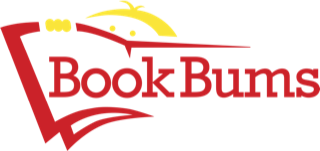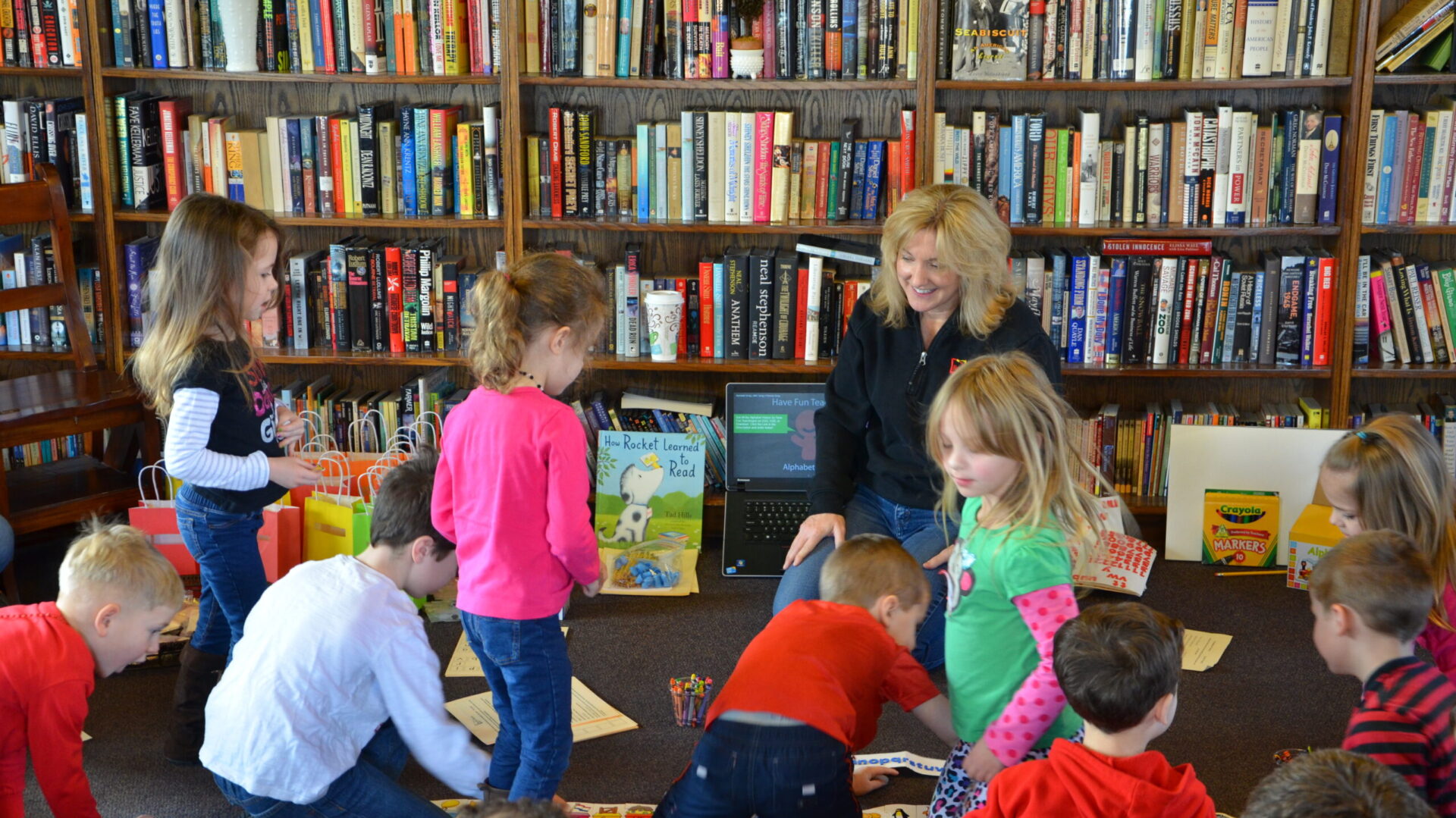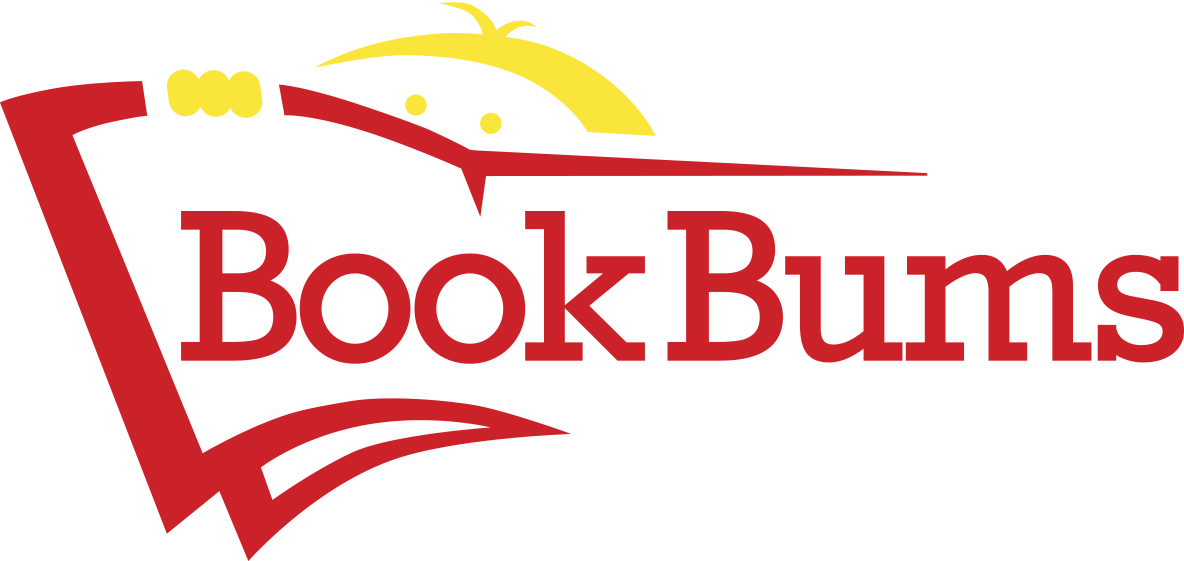
Hello Book Bums families!
Summer is almost here, and we are turning our attention to some wonderful ways to spend the summer days. Of course that includes reading, so we're recommending some compelling historical fiction to add to your family's reading pile. We also share the scoop on Book Bums' summer workshops and some volunteer opportunities. Happy reading!
Bookbums.com is an Amazon Associate; We earn from qualifying purchases. This means that if you click on a link to Amazon.com and make a purchase, We may earn a small commission at no extra cost to you. We do recommend the products. Feel free to find them by other means.
Word of the Week
alliance (uh-li-unts) noun/person, place, or thing - a bond or connection between individuals, families, or states
During WWII, America was in an alliance with Great Britain and France.
Literary Calendar
• May 23 is the birthday of Margaret Wise Brown.
• She is the author of dozens of children's books, perhaps most famously The Runaway Bunny and Goodnight Moon.
• This article from Atlas Obscura explores the farmhouse where Brown wrote.
• At Blue Marble Books in Fort Thomas, KY, you can browse in a life-size recreation of the great green room from the book
From our Bookshelves
I purchased The War That Saved My Life by Kimberly Brubaker Bradley a few years ago, but it wasn’t until last week that I finally pulled it from the bookshelf at Book Bums to read at home. As the school year winds down, I wanted to recommend a great book that your kids would NOT want to put down, and I can tell you that this just might be the one!
It’s no wonder it’s a Newberry Honor Book and a New York Times bestseller. I found this book riveting. I longed to pick it up again to learn what was happening in Ada’s life, and yet I hesitate to share with you what the book’s about, for fear that you’ll find the topic off-putting. You see, the heroine, Ada, was born with clubfoot and she never received corrective treatment. Her mother was ashamed of her daughter’s disfiguration, was abusive, and never permitted Ada to leave their flat.
See? Already, you’re probably thinking, “I don’t want my kids to read about parental abuse.” But please remember that when kids experience lives different from their own—even through the books they read—they become more compassionate, more courageous, more grateful, and they’re better equipped to navigate the world’s realities as well as their own emotions. There’s so much more to this book than the abuse! It’s the hope of victory over the abuse that’s so very inspiring!
The War That Saved My Life is appropriate for kids finishing second grade and up. If your child cannot read it independently, you can read it aloud (and you, too, will enjoy it immensely).
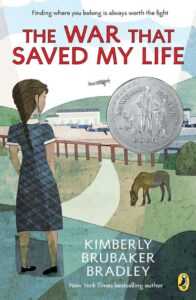
“Expertly operating on many different levels, this exquisitely written novel incorporates themes of self-discovery and self-worth, strength of family, the power of love, and the many different kinds of courage. . . . Heart-lifting.” —Joy Fleishhacker for School Library Journal
Now, if you’ll excuse me, I’m off to enjoy the sequel. You can find me in my hammock.
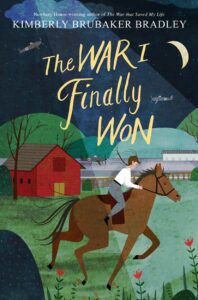
Tips for Families
If you live near a Book Bums location, you may be interested in checking out https://www.westchesteroh.org. It is there that I learned the details about our local farmer’s market (where I found the very best pickles I’ve eaten in my life!), that next year Beckett Park will have a splash playground, that we’ve been named (not too long ago) one of the top 100 places to live, and so much more.
You should also check out https://www.yourmetroparks.net/. This is where I learned about a backpacking class complete with a three-mile hike (that we thoroughly enjoyed), that paddle boards are coming soon to VOA park, and how to better manage honeysuckle, a common invasive plant that was once used for erosion prevention and as windbreaks but is now taking over our woods.
Both resources have emails you can sign up for, so you’ll always have options for things to do this summer.
You should know that, beginning in June, Book Bums will be hosting some summer programming including Book Bums’ Little Letter Learners, a weekly make-it/take-it workshop for parents and their four- to five-year-old children that helps kids hear the sounds in words, learn letter/sound correspondences, form letters efficiently, and more. We’ll have just enough time this summer to address every letter in the alphabet! Our Book Bums Handwriting Workshop is a 5 day/week-long workshop for kids ages six and up. We teach them to use tidy, efficient letter formations that they’ll be oh so proud of when they return to school. Look for more information regarding both programs in this newsletter and on our Book Bums Facebook page! https://www.facebook.com/bookbums.
Do you have some resources you’re finding valuable for your family? Please share them with us by replying to this email newsletter. We’ll help to spread the word!
Volunteers Needed
Dr. Christy is a member of the board at The Faith Alliance, a non-profit organization that seeks to support underserved families in our community. One way we support struggling families is by providing outstanding literacy instruction to kids who are not yet reading at grade level expectations. The Faith Alliance Summer Literacy Program delivers the same fun-focused, high-quality phonics instruction that we provide families at Book Bums, but it’s it is offered FREE of charge.
The students in this program meet twice a week, two hours a day, for 8 weeks, and we need lots of volunteers to serve them well. We love it when volunteers can commit to consistent attendance because it means a lot for kids to have a consistent encourager sitting alongside them, but we’ll take you whenever you are able to join us.
We’ll be meeting at Woodland Elementary School on Mondays and Wednesdays from 10-12 beginning on June 5th and ending on July 26th.
We’ll be meeting at Adena Elementary School on Tuesdays and Thursdays from 10-12 beginning on June 6th and ending on July 27th.
Summer Literacy volunteers simply sit alongside students and engage with them as they complete the fun-focused tasks presented by our teachers. Volunteers make the children we serve feel comfortable and valued. They remind the children about the lessons they’re learning and help them complete each task successfully. They confirm when the kids are getting it right and offer support when they aren’t. That’s about it! Their most important task is simply to show up and strive to make these children (who often have low self-esteem due to their difficulties with reading) feel like the special kids they are.
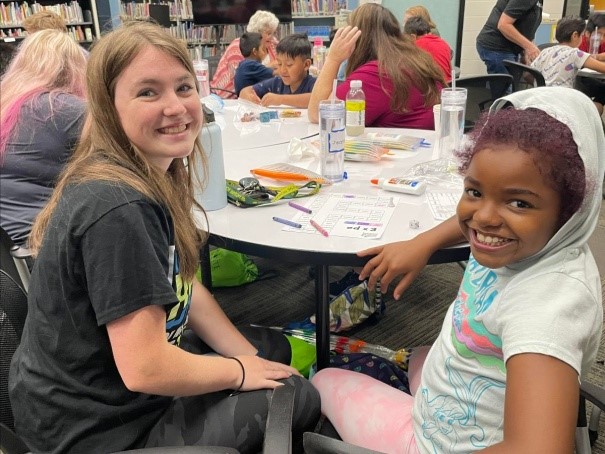
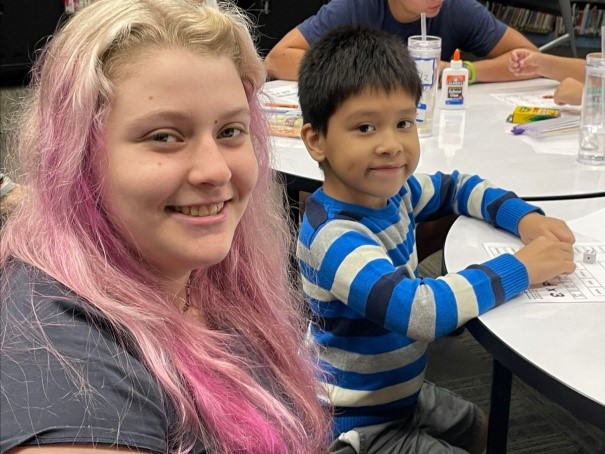
For more information or to commit to serving some really great kids
this summer, students should contact Dr. Christy Williams at christy@bookbums.com.
Tips for Readers and Writers
We know that -ar typically sounds like a pirate; It says, “Arrr!” But look at the word war in the title of our featured book, The War That Saved My Life. We say that differently.
Have you ever noticed that, when you read the logo below, the a-r’s make different sounds? Star and War are not rhyming words.

Why not?
You should know that a w often alters vowel sounds. It happens more than you’ve probably realized.
Think about words like wasp, watch, swan, waffle, wand, wash, and waddle. Those a’s sound more like short o’s, don’t they?
And in was and want, the a’s sound like short u’s, while in words like won and wonder the o’s sound like a short u’s.
The words war, warn, warm, and wart have a-r’s that sound like /or/. That’s odd.
We teach kids that with bossy r’s (where the r tells the vowel to hush and to let the r make its sound, /r/), if the letter w precedes the /r/ sound, the vowel being “bossed” is typically an o. Consider the words word, work, worth, worm, words, and worry.
Now this one’s tricky: In words like squash, squander, and squat, the q-u represents the sounds /kw/, so even though there is no actual w—there’s only the sound /w/, and the sound of the a is STILL changed!
You should know that some folks say a w can be a vowel. Well, it does act like a vowel when it teams up with o, a, and e to represent some unexpected sounds. We teach our students that o-w says “Ow!” and “Oh!”, a-w says, “Aw!”, and e-w says “Ew!”
You see, the letter w is an oddity in many ways. Did you realize that it’s the only letter with a three-syllable name. It’s also one of only three letters where the name does not provide any indication of the sound it represents. (Can you think of the other two? We’ll provide them at the bottom of this newsletter. We’ll help you to keep your brain young by making you work to puzzle this one through.) Not only that, but it’s called a “double u” but we make form it by making a double v!
W. It’s always stirring things up.
Pause for Poetry
To the Buyer of Our Old House
by Helen Pruitt Wallace
We can tell you, if you want, which doors creak,
or windows that need to be re-glazed, which faucet
has a tendency to leak, and where a wine glass
left a halo etched in the counter’s travertine.
And we could share which walls absorb sadness,
till morning light leans in comforting the contours
of the bed, but chances are you’ll learn this
on your own. There’s the cough of the AC kicking on,
and the hiss of the heater turning off, and a crack
in the plaster by the stairs. You’ll study it at times
as metaphor, disaster creeping like the bifurcated lines
of your palm. But then again, maybe you won’t....
Let’s go outside.
The doorbell never works when it rains. And the riot
of white gardenias blooming now is always late.
A black snake burrows through ferns, and a cardinal
spends days hurling himself against our bare window.
We say our, but it’s your house now. Our beloved dog
was buried over there—along with his chew toys
and bones. And at night our kids’ laughter carries
through the courtyard of the home (though they
moved out some years ago). And this large oak—
what can we say? Old limbs keep falling even when no
wind stirs. The tree is gone. We sold because we couldn’t
chop it down. Still, we hear the woodpecker crazed
as the leaves turn brown
Practical Grammar
Emigrant and immigrant are homophones. They sound the same. (homo=same, phone=sound) Their meanings are also related, so they’re often confused. Here’s the scoop:
A person is an emigrant when they leave their country of origin and an immigrant when they arrive in their new country.
Ada (from The War That Saved My Life) was neither an emigrant nor an immigrant because she was moved from the city of London to the British countryside. She never left England.
*The letters W, H, and Y provide no phonetic clues as to the sounds the letters represent.*
If you know someone who would benefit from our newsletter or tutoring at Book Bums, please share this email with them! Thank you.
Copyright © 2024 Book Bums, All rights reserved
Our mailing address is:
7967 Cincinnati-Dayton Road Suite L
West Chester, OH 45069
